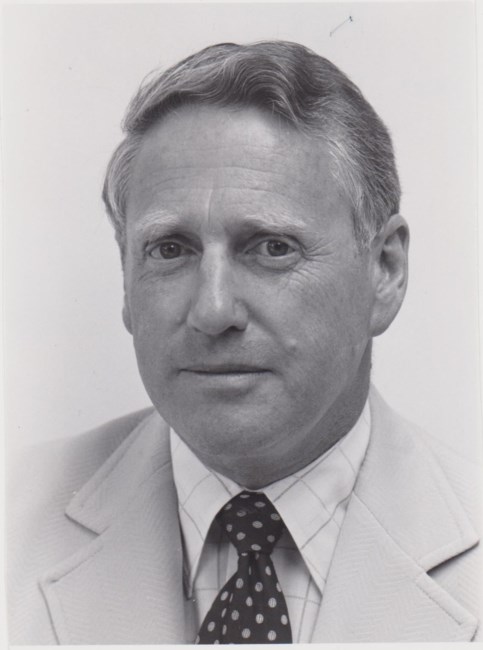
OBITUARY
George Roderick Kerr
May 15, 1930 – July 10, 2015

George R. Kerr, MD died at his home on July 10, 2015 at 85 years of age. He was born in Winnipeg, Manitoba, the son of Reverend Alexander and Nessie (Beaton) Kerr.
George grew up in Halifax, Nova Scotia during World War II. At that time, Halifax was a port city under constant stress due to it's oil refinery and the knowledge that German U-boats were lurking just outside the Harbor. George's adventures growing up included practicing surveillance for enemy submarines and searching the shoreline for wreckage from torpedoed ships. One of his fondest recollections was finding a salvage yard of wreckage which included the remains of a Spitfire fighter plane. He managed to extract a machine gun from its wing and carry it home for a trophy. Another adventure was hitchhiking to Louisburg at age 12 to beg a sword from a fishing boat returning with a load of swordfish. He carried the sword back to Halifax, burying it in his backyard to preserve it. Sometime later, when digging it up, his shovel struck an old ships cannon which he always treasured.
George completed high school in Halifax and spent his summers working at manual jobs including freight handling and pick-and-shovel labor and had exciting adventures spent as a "mess-boy" and deck hand on Imperial Oil tankers. He remembered being awed at seeing the majestic icebergs drifting off the coast of Labrador and hearing the soft flop of flying fish landing on the decks at night off of the coast of Venezuela.
Despite a desire for a career at sea, George was persuaded by his father, then President of Dalhousie University, to enter Medical School, from which he graduated in 1955. After a short period as Medical Officer of a construction firm in Stephenville, Newfoundland, he completed training in Pediatrics at the University of British Columbia then Pediatric Endocrinology at the University Of Oregon Medical School in Portland, Oregon. This was followed by faculty appointments in pediatrics and/or nutrition at the University of British Columbia, University of Oregon and the University of Wisconsin, Madison where he was also Assistant Director of the nation's first Primate Research Center, and a member of the Joseph P. Kennedy Research Center. He taught at Harvard University's School of Public Health and coordinated a large-scale nutrition intervention program in Tunisia, Africa before his final appointment at the University of Texas' School of Public Health in Houston, where he served as Director of the Human Nutrition Center. He was selected Chair of the Faculty and appointed Associate Dean of Student Affairs, retiring as a Professor Emeritus in 2003. During those years, his main teaching and research areas involved the growth, development, nutrition and public health of children. He lectured world-wide and published many scholarly papers. His students were his top priorities and he mentored many fellow educators with his quiet humor and willingness to explore the impact of new societal trends on public health.
He received a number of awards during his professional career including an R. Samuel McLaughlin Traveling Fellowship, a Queen Elizabeth II Canadian Research Fellowship, was appointed an Honorary Fellow of the American School Health Association, and a Joseph Goldberger Visiting Professorship from the American Medical Association. He was a member of the Committee on Nutrition of the Mother and Pre-School Child, the Food and Nutrition Board of the National Academy of Sciences, and collaborated with a number of state and national health departments, the March of Dimes, UNICEF, and the Houston Food Bank.
More important than his academic achievements was his pride in his family. He was married to Doreen, his wife of 61 years and they were blessed with six children: Donald (Michelle), Mary Jenkinson (Jeffrey), James, Sandra Wheeler (Rich), Roderick (Julie) and Richard. He is also survived by 13 grandchildren and a sister, Joyce Rees of Edmonton, Alberta.
George enjoyed travel and his maritime heritage. He loved being by the ocean which led to his hobby of carving half-hull models of the Bluenose and other North Atlantic schooners, whales, and other marine mammals. He was a historian, and voracious reader whose well-loved Kindle was never far from his side. He loved learning and will be remembered as a man of great intellect, compassion, curiosity, humanity and generosity. He was a private, humble man who always made every effort to help anyone he could.
A private family gathering will be held to celebrate a life well-lived and following his wishes, his ashes will be taken out to sea and scattered in the ocean he loved so much.
Auld Lang Syne
Show your support
Add a Memory
Share Obituary
Get Updates
Services
SHARE OBITUARY
- RECEIVE UPDATES
v.1.8.18